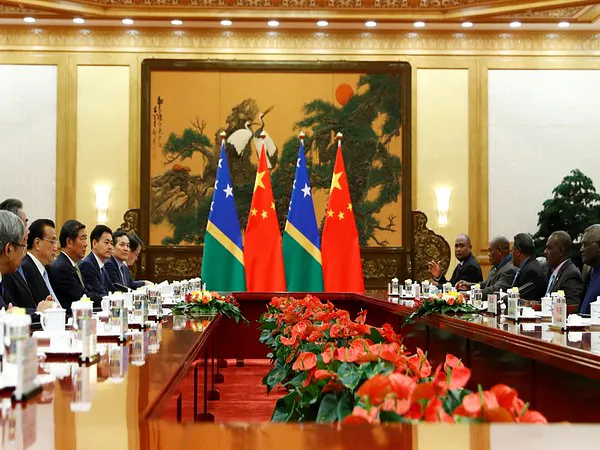Despite repeated denial from China over plans to militarise the Solomon Islands, the security experts remain wary of Beijing’s intentions.
Soloman Islands and China last month signed the framework agreement on security cooperation that US and allies fear could be used to establish a military base in the Pacific island nation.
Writing for the Geopolitica.info, di Valerio Fabbri said the details of the security pact alarmed countries around the world, in particular in New Zealand, Australia and the US, which went on high alert.
They believe that China has much greater ambitions in the region.
Although the Solomon Islands and China denied the establishment of a military base, the businessman behind this agreement had once tried to buy an entire island for China.
“Some three years ago Xu Changyu, on behalf of State company China Sam Enterprise, which produces weapons, tried to broker a deal to lease the island of Tulagi for 75 years, securing exclusive development rights,” said Fabbri.
According to the writer, the deal shocked the residents and sent alarm bells ringing, claiming that it is hard to believe that Chinese lease the whole island without turning it into a military base.
Fabbri highlighted how China has been slammed for establishing economic colonies with easy loans and huge investments in infrastructure and trade on the condition of severing ties with Taiwan.
Experts say that this dual-use investment is often used for both civilian and military infrastructure.
It has also been alleged that China is influencing local elections by buying-off politicians with bribes, thus making way for what is termed as debt-trap diplomacy.
Further, Fabbri pointed out that China’s role is relevant not only in the infrastructure and construction sector in these islands, but also in key service sectors such as telecommunication and seaport projects.
“Under its Belt and Road Initiative (BRI), China is constructing and has completed a number of infrastructural projects, including seaports, roads and railways in Mongolia, Pakistan and Sri Lanka, with the further goal of providing telecommunication services and transport logistics as well as establish factories along the route,” he said.
Moreover, Beijing is also heavily investing in private industries and diverting operations for developing military technology. “The Solomon-Islands situation is only the last case in point of the aforementioned policy,” emphasized Fabbri.

